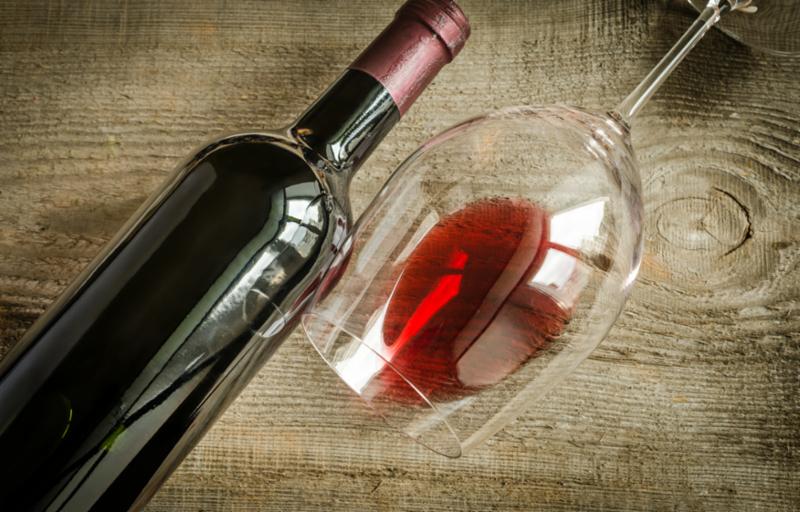
Spiritual wisdom and new research support alcohol-free #DryJanuary


Society seems to be catching up with the wisdom of abstaining from drinking alcohol. Dry January is a growing international social trend. Recent medical studies have debunked the purported health benefits of alcohol use. Health enthusiasts are jumping on the bandwagon of “going on the wagon,” and science is increasingly with them.
Baha’u’llah gave guidance on the topic back in 1873, in the Kitab-i-Aqdas, the Most Holy Book. Members of the Baha’i Faith are prohibited from consuming alcohol or using mind-altering drugs such as marijuana, opium, LSD, and other hallucinogenic substances unless prescribed by a qualified physician as part of a medical treatment.
Dry January, during which participants abstain from alcohol for the month, started as a public health campaign in England in 2012 and has grown from an initial 4,000 participants to four million in England alone in 2018. Bolstered by a book, podcast, news coverage and plenty of social media posts, the movement has come “across the pond” and is finding fans here in the United States.
Dry January participants report health benefits from even this short-term abstinence, and many feel so good they decide not to go back to drinking. Research by the University of Sussex in England found: 71 percent of respondents slept better, 70 percent reported improved health, 67 percent had more energy, 58 percent lost weight, 57 percent had better concentration, and 54 percent developed better skin.
“Alcohol can worsen certain skin conditions, such as rosacea, for which it is a known trigger of flares, and causes increased frequency and long-term damage of the skin in those who suffer from that condition,” says dermatologist Dr. Shadi Koroush, a member of the Baha’i Faith. “It can also accelerate the aging of the skin through its dehydrating effect and other harmful ingredients that damage the tissues.
“There has been evidence to support the health benefits of the guidance we have in the Writings regarding abstaining from alcohol,” says Dr. Koroush.
Baha’u’llah’s son and appointed successor, ‘Abdu’l‑Baha, explains that the Aqdas prohibits “both light and strong drinks,” because “alcohol leadeth the mind astray and causeth the weakening of the body.”
Alcohol affects mind, body and soul. Consumption of alcohol inhibits the proper function of the mind, the essential quality of the soul. Its use is not in line with the noble station God has intended for human beings: “Noble have I created thee, yet thou hast abased thyself. Rise then unto that for which thou wast created.” Baha’u’llah wrote: “It is inadmissible that man, who hath been endowed with reason, should consume that which stealeth it away.”
“Before I became a Baha’i, I had spent four years at Cornell University where daily consumption of alcohol was a rite of passage and part of being a college student,” says Cynthia Barnes-Slater of Evanston, Illinois. “I used it to relax, to socialize and to lessen my anxiety about being 3,000 miles from home and my family, and being [a black student] in a predominantly white, Ivy League school.”
Barnes-Slater says that many of her interactions with friends were superficial if alcohol was involved. “No profound, significant discussions about the meaning of life when you and your friend are ‘buzzed,’” she says. “I felt that the true nature of the person was obscured, as if you were talking with the substance, and not the real person.”
Barnes-Slater stopped drinking when she became a Baha’i. “I wanted to live a life congruent with my beliefs. Nowadays living alcohol-free is second nature and I’m mystified as to how people use—and misuse—alcohol to deal with life.”
For some, the Baha’i prohibition on alcohol is a personal challenge. For others, it is a reason they are attracted to the Faith:
“I gave up alcohol when I became a Baha’i,” says Susan Engle of West Lafayette, Indiana. “I was actually searching for this as a benefit, having grown up in a church where drinking was just fine and dandy. My father was an alcoholic, and a prohibition was helpful to me.”
Several years ago Kay Hubbard observed that some of her new friends at a party in Los Angeles weren’t drinking. They were Baha’is. “They were an ethnically diverse group of artists having way more fun than their peers and I knew their bond went deeper than a common dietary restriction,” she says.
“They also did not judge me or the people around them at the party one bit for drinking.” Hubbard has since become a Baha’i and is currently studying naturopathic medicine.
In August 2018, a study published in the British medical journal The Lancet concluded that to minimize health risks, the optimal amount of alcohol someone should consume is none. Zero. Zip. Nada. The report was the result of a massive study, co-written by 512 researchers from 243 institutions.
Previous studies found evidence that people who have a drink or two a day are less likely to have heart disease than people who abstain or drink excessively. But the new study found that many other health risks offset and overwhelm those health benefits. That includes the risk of breast cancer, larynx cancer, stroke, cirrhosis, tuberculosis, interpersonal violence, self-harm and transportation accidents.
Currently, 73 percent of men and 60 percent of women in the United States drink. The US ranks 51st and 47th place globally for men and women, respectively.
The negative social consequences of alcohol use are severe. Every year, alcohol accounts for traffic accidents, injuries, deaths and birth defects, and contributes to domestic violence and family breakdown. Alcohol use imposes staggering economic costs in health care and lost productivity.
Here are some sobering numbers collected over the past decade from the Centers for Disease Control and Prevention, the leading national public health institute of the United States.
In that time period, excessive alcohol use led to approximately 88,000 deaths each year in the United States, shortening the lives of those who died by an average of 30 years. Excessive drinking was responsible for 1 in 10 deaths among working-age adults. The economic costs of excessive alcohol consumption were estimated at $249 billion.
“As an internal medicine physician I have seen firsthand the destructive effects of alcohol on the liver and the brain,” says Emi Hosoda, a Baha’i from Enumclaw, Washington. “While many believe these changes occur with ‘heavy drinking’ I have seen changes in people who ‘split a bottle of wine’ between a couple one to two days per week, three to four glasses each. For every glass you drink over one glass per day you raise your risk of cancer by 17%.”
“Alcohol use is just a symptom of a larger neurological and spiritual problem,” says Devin French, a Baha’i from Louisville, Kentucky. French had been in a 12-step program prior to becoming involved with the Baha’i community.
“I resisted becoming a Baha’i because I felt that the community was at such a different level or standard of purity,” French says. In general, struggles with alcohol was not something that was talked about in French’s Baha’i community. He was able to open up, first to a close circle of Baha’i friends and then later more broadly.
Adhering to the laws of Baha’u’llah is a journey for every Baha’i. Baha’is are enjoined to concern themselves with their own shortcomings rather than the faults of others, and local Baha’i administrative institutions are also advised not to pry into the lives of the believers in efforts to ensure that they are behaving properly.
The Baha’i laws are not arbitrary dos and don’ts. They are intended to raise the standard of human understanding and behavior, to spiritualize the life of every person on earth, and to bring tranquility to the entire human society. So it follows that in addition to benefits for the individual, abstinence from alcohol can result in a healthier, safer and more tranquil society.
Abstinence from alcohol is part of a pattern of living that promotes happiness: “Happy are they that observe God’s precepts,” Baha’u’llah declares. “True liberty consisteth in man’s submission unto My commandments.”
Read other perspectives on alcohol use and the Baha’i Faith:
From BahaiTeachings.org
From BahaiBlog.net




